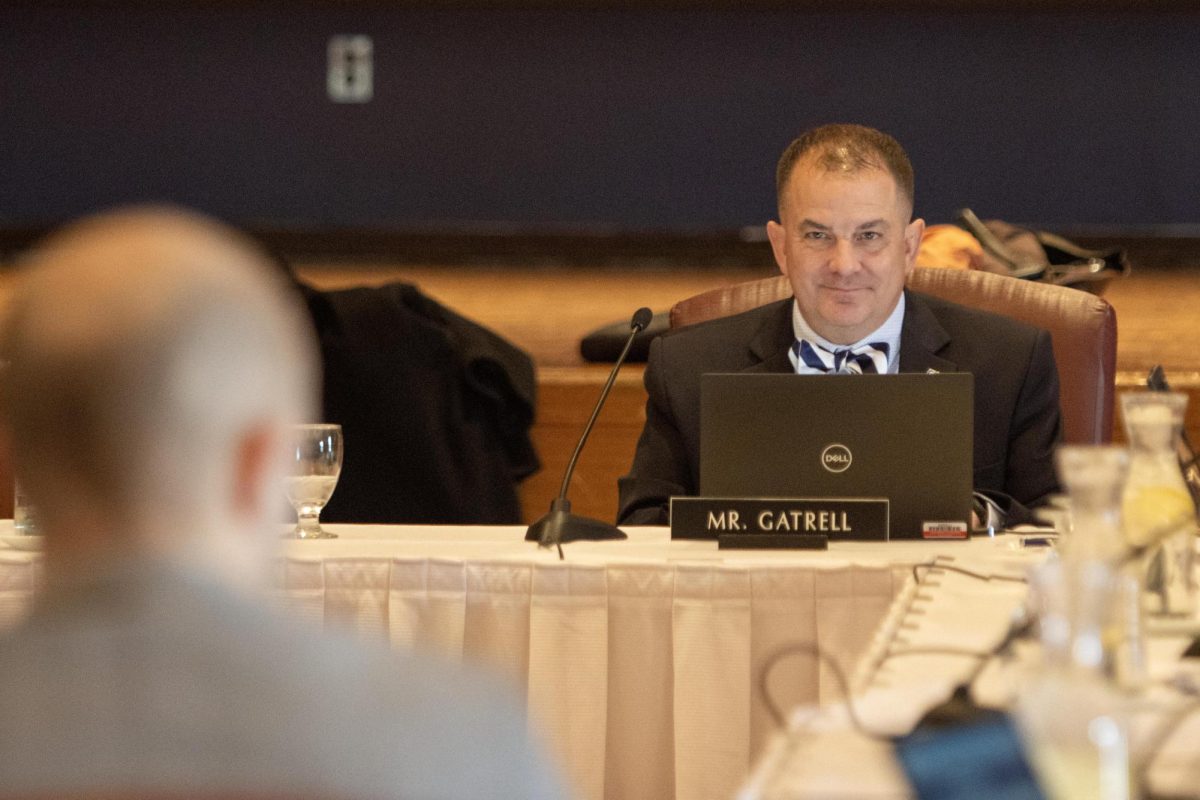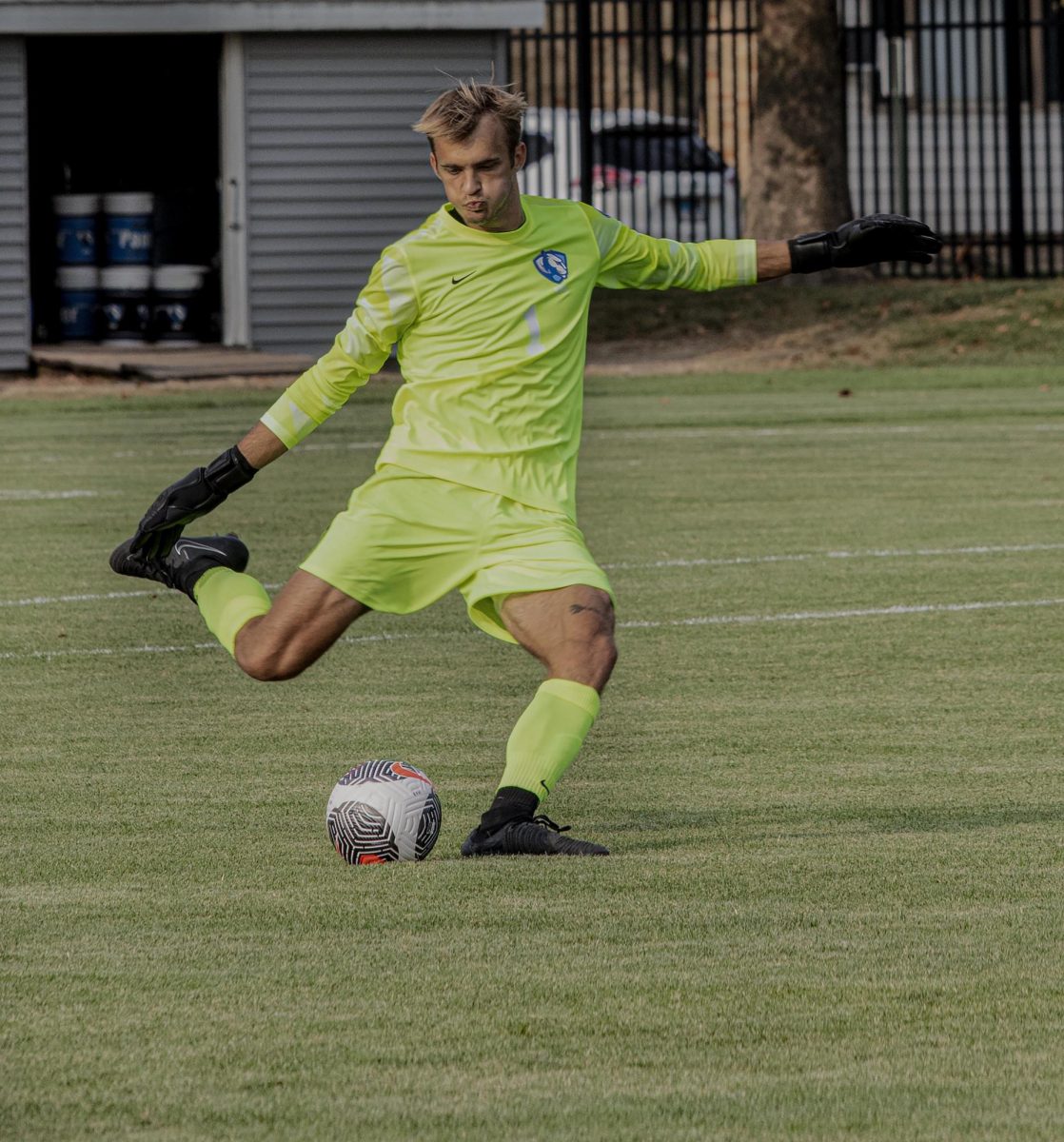Drug courts provide second chance
Drug users who get caught could find themselves in Drug Court.
Drug Court is basically a process to help nonviolent drug offenders get back on their feet. The purpose is to take these people and put them through an intense rehabilitation effort instead throwing them immediately behind bars.
Offenders meet with the Drug Court committee every week for six weeks. Their progress is evaluated, and if they have complied with the standards their visits are required only every other week. Eventually, visits are bumped up to once a month if everything runs smoothly, said Judge Mitch Shick, who has worked with the Drug Court since it began two and a half years ago.
Offenders, despite how often they meet with the Drug Court, must meet with their probation officer and be drug tested every week, Shick said.
To graduate Drug Court, offenders must undergo residential and outpatient treatment, be employed and sober for a year, have a high school diploma and participate in a community service project, Shick said.
The entire process usually takes between a year and 18 months, said Barbara Smith, vice president of the Coles County Meth Awareness Coalition.
“At the end, the charges are reduced or withdrawn,” Smith said.
The program is effective. Of the 38 participants, three or four have been failures, Shick said.
Of those who pass, 7 to 20 percent end up with future drug charges compared to 40 to 60 percent who go straight to prison without going through the program.
Shick said the program targets the addiction, not the person, making it more effective in the long run.
Drug Court also saves taxpayers money. Instead of spending $25,000 to $30,000 to keep offenders locked up, they spend $1,000 to $3,000 on court fees. This is because the majority of the fees are paid by the participants themselves because they are required to get a job, Shick said.
While Drug Court helps people with all types of drug problems, the majority are methamphetamine related.
“At one point (Coles County) was leading the county in meth lab arrests,” Smith said.
To this day, 70 to 80 percent of the 200 or so drug charges a year in Coles County are meth related, Shick said.
Smith also noted that meth is mostly a rural problem. One of the main reasons that meth is usually made, or “cooked,” in “the middle of nowhere” is the rancid smell meth labs produce.
“It’s much harder to cook in Chicago because you can’t hide the smell,” Smith said.
Shick also noted that cooking meth is relatively inexpensive, and the ingredients can be found at Wal-Mart.
Meth is the most addicting of drugs — just one use can make the user dependant on it — and it produces the biggest high.
“Those who have tried it say (the high) is 10 times greater and last hours longer than cocaine or any other drug,” Shick said.
The Coles County Meth Awareness Coalition will host a Drug Court Celebration and Open House at 3 p.m. at the Coles County Courthouse, Courtroom No. 1.
The focus today, however, will not be on the offenders but instead will provide an educational outlet for those who don’t know that much about meth and Drug Court.
“When we started doing workshops I was amazed at how little people knew about what a lab looks like, smells like and how dangerous they are,” Smith said.
Smith also said she hopes that the proceedings with help the community gain a good understanding of how the Drug Court process works.
“Many think Drug Court is too lax. We want them to understand it is a difficult process. Some can’t do it and take their jail term,” Smith said.
The festivities will begin by with a graduation ceremony that will honor four participants who completed Drug Court. Following the ceremony participants, will be able to observe a mock Drug Court proceeding and ask the committee questions.
The next meeting for the coalition is at 4 p.m. Tuesday in the Education Center at Sarah Bush Lincoln Health Center. The meeting is free and open to the public.






































































